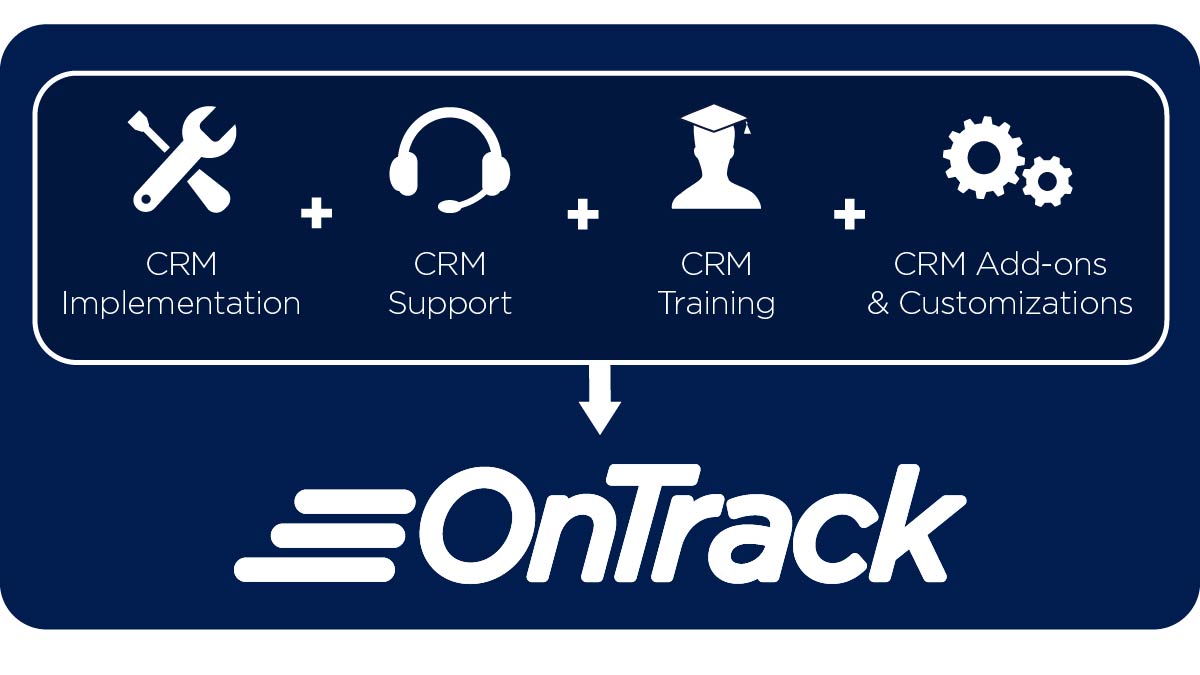3 Super Common Microsoft Dynamics 365 CRM Implementation Questions Answered
3 Super Common Microsoft Dynamics 365 CRM Implementation Questions Answered
Timing and pacing matters
Let’s take a look:
– BusyDaisy
A: Implementing CRM comes with both immediate and long-term benefits. There’s no doubt about that.
One of the things we advise, though, is that you don’t rush into the implementation, and you don’t try to schedule your implementation during busy periods or around holidays or other important activities or initiatives.
If you’re talking about merging offices, I’m going to guess there’s probably a lot going on during that time. The week of the merger is probably not the best time to do your actual implementation and training.
I would recommend you use that time to do what you need to make the merger a success. Get your business culture and processes in line. Then come back and revisit the implementation.
You can do a lot of things remotely these days—in fact, most of our CRM implementations are done remotely! You can still have a successful implementation.
Q: The president of our company has tasked me with buying CRM licensing. I know that the acquisition of the software will be quick, but how much time should I allocate for the implementation for 10 users? I’ve heard of other companies taking anywhere from one week to a year to get CRM in place.
– Timeframe Tony
A: That’s a really good question. A lot of people out there, unfortunately, have been led to believe that you just buy the CRM, turn it on, and then you’re going to immediately start seeing benefits. That is definitely not the case.
Other people have talked to consultants, and they find that their implementations will take a year to two years. That also doesn’t need to be the case.
We’ve done hundreds of implementations, and our process takes five to six weeks to get you up and running successfully with CRM. You’ll be fully trained, and your CRM will be fully implemented and working the way you need it to be working.
That’s for an implementation that’s being done from scratch. If you need to migrate data from another system, like SalesForce for example, that will take a little bit longer—but not too much longer!
If you’re interested in more information about our process, click this link to learn about our OnTrack CRM Success System. Or, you can contact us directly and we’ll be happy to answer any questions.
Q: We’re implementing a 20-user system. One of our managers wants to make sure security is place so people only see what they are supposed to see. Do you have any advice on putting security in immediately?
– SecureSteve
This is also a very common question. Often, we see people with the best of intentions get a new system and want to do everything right away. They want to make everything secure. They want everything and the kitchen sink in the system. That’s because they want to create immediate benefits.
Our recommendation, especially for smaller companies, is this: start simple. Start as simply as you can while still delivering value.
When it comes to security, it’s better to err on the side of openness at first. You can always add restrictions later. What you don’t want to do is restrict things to the point where people can’t see what they need to see to do their jobs, or make things more complicated or cumbersome.
A restrictive, complicated, or cumbersome system won’t deliver the value you need. It might even drive users away from the system before you really get going with it.
That’s it for this CRM mailbag. Thanks for joining us, and hopefully we’ll see you next month for some more CRM questions and answers.
If you have questions, please send them to us. We’re always happy to help out, and we might even feature your question in a future episode!
Set your CRM implementation project up for success
CRM is not a magic wand. It takes planning, focus, and buy-in to ensure your CRM project is a success. And although CRM is much, much cheaper up-front today than it was ten years ago, you still want to get the most from your CRM investment as soon as possible.
That’s where the OnTrack CRM Success System comes in.
The OnTrack CRM Success System is a structured approach to CRM implementation, training, and adoption built upon a proven methodology more than a decade in the making:
Plus, OnTrack is a fixed-price service with a 100% money-back guarantee, so you won’t get blindsided by any nasty billing surprises!
Why MSP’s Should add CRM to their Solution Portfolios
We’re entering a new era in CRM. All the old reasons for customers buying CRM are still valid. But the advent of AI is making the case for renewed interest in CRM. To modify an adage, “If it’s interesting to my customers, then it is fascinating to me!”. AI is...
Boost Your MSP Earnings with Strategic Partnerships
Time is money, we’ve been told since childhood. The idea is that people should focus their attention on the things that bring value to them, and avoid the things that don’t. Since time is a precious resource, it makes sense to try and maximize its utility as it’s the...
CRM Launch in 5 Weeks – Get Results Fast!
The Growing Importance of CRM CRM is increasingly becoming an essential tool for businesses aiming to stay competitive. Yet, the journey to implementation is often marred by inefficient processes that lead to resource drain without yielding desired results....
4 Key Principles for CRM Success
Implementing CRM successfully is crucial in today’s business landscape, where 40 to 70 percent of projects are reported to fail, leading to significant time and financial losses. This stark reality underscores the importance of approaching implementation with...
Do This to Avoid Wasting Time and Money With Your CRM
CRM as the Backbone of Competitive Advantage Investing in a CRM system can either significantly boost your business or, conversely, fail to meet expectations. Enhancing sales growth, operational efficiency, productivity, customer retention, and responsiveness are...
Adding CRM to Your Solution Offering – Not Just a “Nice to Have”
Many MSP’s hesitate to add non-infrastructure solutions to their offerings. There are a lot of reasons for this: Lack of experience with the solution Fear of losing focus on the vital infrastructure solutions that make up the core offerings Uncertainty over the...
5 Reasons MSP’s Should Care About CRM
Every MSP cares about their customers. Reliability. Trustworthiness. Committed. These are the attributes that MSPs want to reflect back to their customers. In an earlier I post I talked about the pain that many customers are feeling because of a CRM install gone bad....
CRM Made Easy For Partners – The Azamba Difference!
Simplified CRM Every large tech company must have processes to make sales and marketing programs work. You obviously can’t have different ways of doing things all the time, so the need for process is important. But it sure can be tough for partners to navigate. This...
How Microsoft Dynamics 365 CRM is CRUSHING Salesforce
Choosing the right CRM is a pivotal decision for any business, especially for small to medium-sized enterprises seeking to streamline operations and enhance customer relationships. When it comes to selecting between leading CRM solutions like Salesforce and Microsoft...
5 Reasons Why Adding CRM to their Solution Set Makes MSP’s More Successful
2024 will be the year of customer retention. Many are forecasting choppy economic waters ahead so it’s incumbent for Managed Service providers to protect their business. At Azamba, we think that partners have a golden opportunity to increase their margins while...
Peter Wolf is the president and founder of Azamba. He has spent the last 20 years focused on helping small and medium-sized businesses become more profitable through effective and efficient usage of CRM.
His passion is blending the promise of CRM with the realities of business needs to create successful outcomes.
Related articles:

Boost Your MSP Earnings with Strategic Partnerships
Time is money, we’ve been told since childhood. The idea is that people should focus their attention on the things that bring value to them, and avoid the things that don’t. Since time is a precious resource, it makes sense to try and maximize its utility as it’s the...





